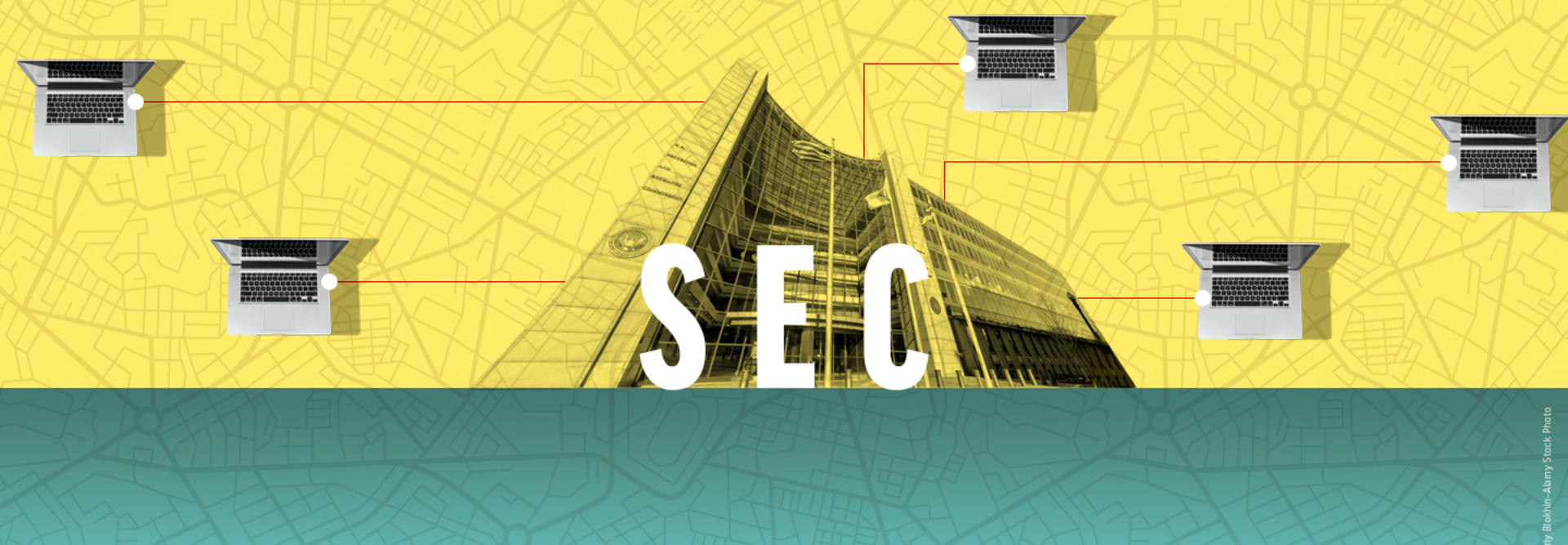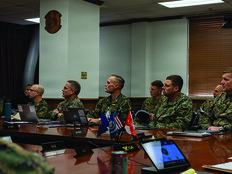Editor's Note: This is one of a series of Q&As FedTech has conducted with government IT leaders on how they pivoted to remote work. For more entries in the series, click here.
When he started his new job in January 2020, Securities and Exchange Commission CIO David Bottom learned that teleworking was a routine part of the SEC’s operations.
But little had prepared him for the scenario he would face after barely two months on the job, when the coronavirus crisis forced nearly the entire SEC staff to work from home full time.
Bottom was concerned about the agency’s ability to scale telework operations so rapidly, as well as the ability of the agency’s network to handle the additional capacity. He soon found, though, that the SEC’s previous IT investments served the agency well in an emergency.
In this Q&A, he describes the steps the SEC took to ensure a smooth transition to full-time remote work for the entire agency.
FEDTECH: What proportion of your agency usually teleworks?
BOTTOM: I started here on Jan. 6. There were a lot of folks that would telecommute as needed, or a couple of days a week as mission allowed. It wasn’t full-time telework, by any stretch of the imagination. The default right now is for folks to telework, not to come into the office. That’s true both in our headquarters in D.C. and in our regional offices across the country.
FEDTECH: Did you have any concerns about making the transition?
BOTTOM: We had not done this before, certainly not to this scale. You’re always worried about network capacity, because the design of the network is primarily around folks being in the office. It turned out that, from a network standpoint, it went fine. We really haven’t had the performance issues that we could have had. I think that speaks well to the investments that the agency has made overall to keep people productive. People teleworked a couple of times a week, so they were practiced at it, and the capabilities were there. We’ve been working hard to make sure we’re maintaining stability of the infrastructure and maintaining our security posture.
FEDTECH: What remote work tools did you have in place, and did you have to adopt any new tools?
BOTTOM: We haven’t really had to adopt any new tools. Virtual private networking is pretty widely deployed. Our collaboration service is Webex, and we’ve continued to leverage that. From a telework standpoint, people are learning the ins and outs of Webex — making sure to turn the camera on and off, making sure you’re muting and unmuting, all those things that come with being on camera all of the time. We’ve put out a number of tips and tricks for getting the most out of your desktop suite, emphasizing that people are coming in remote, make sure you reboot your laptop once in a while to free up memory, those types of things.
FEDTECH: Have you had to step up IT training?
BOTTOM: It comes in two areas. Certainly, training around the tools themselves — most of that is online. “Here’s where the button is, here’s what the button is intended to do,” the mechanics of using the tools. And then our HR department has done a wonderful job with the workforce on what it means to communicate with people who are remote — keep in mind things that are different when communicating remotely as opposed to being in the same room, what that means in terms of how you run a meeting, making sure people are involved, moving projects along. That’s an investment our HR department has made.
FEDTECH: What did you learn about your agency’s ability to handle telework that you didn’t know before?
BOTTOM: I think the transition to telework went relatively smoothly. There was really nothing systemic. It was very much individual issues.
FEDTECH: What were your expectations around employee productivity, and what have you seen?
BOTTOM: I would put it in two categories: the work associated with keeping the systems operational, and then delivering new capabilities. From a connectivity standpoint, in terms of operational system availability, the team didn’t miss a beat. On the new delivery piece, we did slow down changes the first couple of weeks, in the interest of stability. We wanted to make sure we were mindful about double-checking things, to make sure as we implemented a change or a new capability for our offices, that it wasn’t going to break something. But I’m happy to say, we’re back up to the same level of changing the infrastructure to deliver things as we were in January, when I got here. From a productivity standpoint, I don’t think we’ve missed a beat. Folks are definitely working harder to make sure we can maintain the ability to support our customers.
FEDTECH: How do you think this experience might impact future telework practices in your agency?
BOTTOM: My impression coming in was that telework was a part of working at SEC. Certainly, that’s not going to change. In terms of expansion, I think that folks have gotten more comfortable from an IT standpoint working remotely. The fears of lessened productivity haven’t really come to the fore. Of course, if you lose your connectivity, productivity is going to plummet. In general, from an IT standpoint, the workforce has found that some of those things we were hesitant on before have actually not occurred. I do think that people are more comfortable with it. That said, mission is going to be what drives where you work.
FEDTECH: What IT situations arose that you did not expect? How did you handle them?
BOTTOM: There were a lot of things I expected that didn’t happen, so that’s great. We had challenges early on in terms of bandwidth utilization across Washington, D.C., that the major telco providers really responded to quickly. You had a pretty dramatic change in usage patterns, where people were in the office and making calls from the office with traffic going across the wide area network — that changed overnight. People just started living on their phones. So we had some bandwidth issues there that our carriers really helped us out with. They were terrific.
FEDTECH: How are you ensuring cybersecurity during this massive increase in telework?
BOTTOM: First and foremost, you have to continue to focus on the basics of hygiene — so, we want to make sure we’re patching the servers and storage in our data center, as well as the peripherals that are connected to it. We haven’t let up on that, even though the SEC laptop or phone is no longer in the office. Reminders on phishing — the agency does a really good job on that. Even when you’re at home, you still have to pay attention to that.
READ MORE: Learn how to make federal telework a long-term success.













